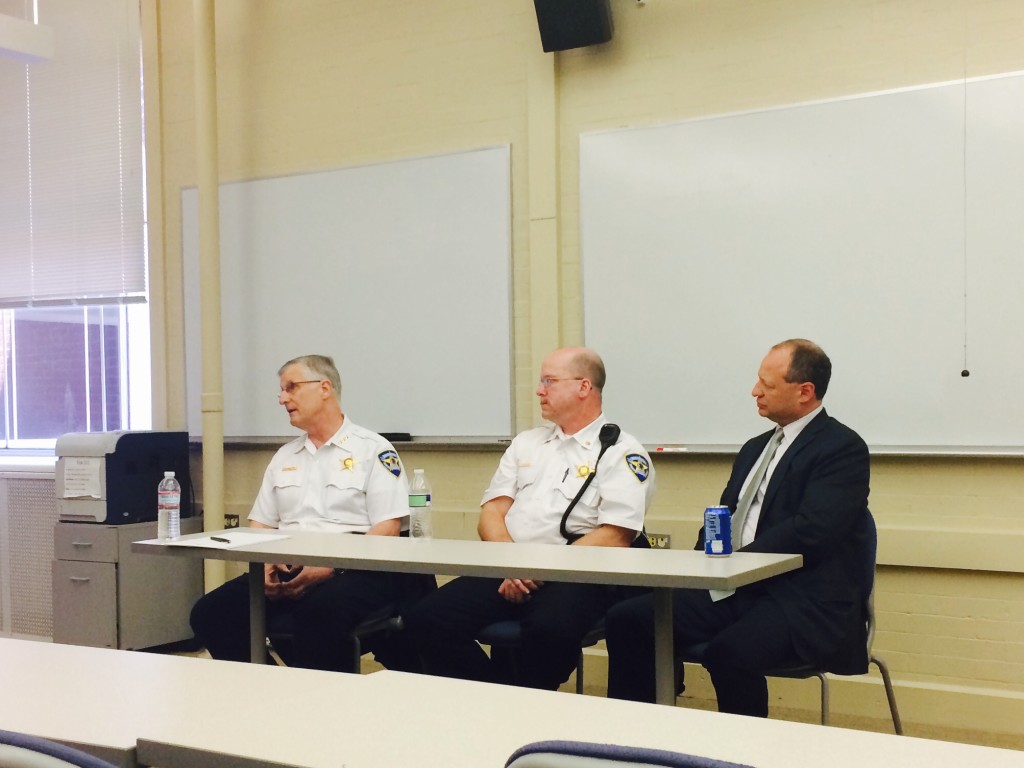The Evanston police chief, a police commander who routinely deals with the media and a former federal prosecutor emphasized the importance of building relationships between reporters and law enforcement officers.
The three men spoke to the Medill community of about 30 students, faculty and staff members Thursday on what they believe works for and what works against journalists in pursuing news about crime and punishment.
Chief Richard Eddington, Cmdr. Joe Dugan and former Assistant United States Attorney Jeffrey Cramer all emphasized the importance of building relationships with members of law enforcement and they also explained some of the rationale behind various different police department practices.
“A huge part of it is credibility,” said Dugan, who recently became the department’s spokesman. “It’s important to build relationships.”
Cramer added that it’s a good idea to start small and build on that rather than expect instant acceptance. “You can start slowly,” he said. “Try to get broader information with generic questions. That gets a rapport going. But you’re not going to go zero to sixty (in building trust).”
Eddington said authorities are willing to work with journalists but that cooperation needs a solid foundation.
“We’re looking for professional partners to get this information out to the public,” he said. “If you come prepared, if you’re willing to invest the time… It’s hard to make friends in a crisis. There’s no getting through all these things in a compressed time while you’re competing with other media outlets.”
Despite dramatic protests and conflict between citizens and police in cities like Ferguson and Baltimore in the last several months — and the potential threat of similar protests in a city like Chicago — Eddington said he feels that his dealings with journalists haven’t just changed, but also improved as of late.
“Our relationship with the media has changed multiple times,” Eddington said. “In the short time I’ve been in Evanston, it’s become much more social media driven, much more transparent.
“Talking to the press is like a forward pass,” he added. “Three things can happen; two are bad. There’s always going to be some standoffishness on our part, but I think we’re better behaved, we’re more transparent.”
Recalling other stories and advice, the three repeated the importance of journalists following the law, staying safe and being respectful of crime scenes.
When there are police perimeters set up, for example, “It’s not because we don’t want you to have the story,” Eddington said. “It’s because we don’t have enough assets to protect you.”
As for when it’s appropriate to share “off-the-record” information?
“Only with someone that I have a longtime relationship with,” Eddington said. “There has to be a mutual understanding. But sometimes that background information is crucial to painting the mosaic of what’s coming next.”
The hour-long discussion was hosted by the Medill National Security Journalism Initiative.
For more information about the NSJI at Northwestern University, visit nationalsecurityzone.org or contact Tim McNulty at timothy-mcnulty@northwestern.edu.






